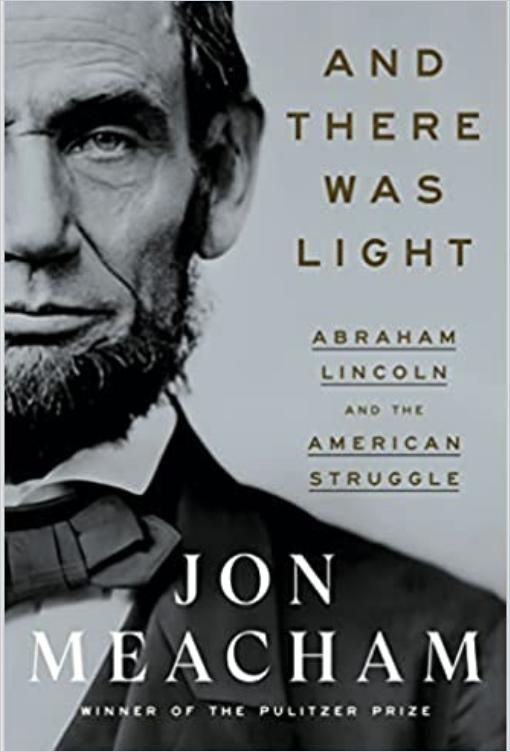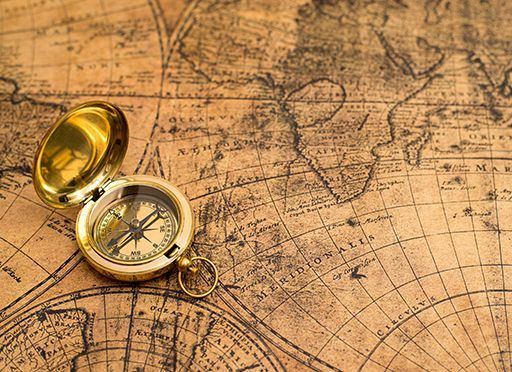Pulitzer Prize-winning historian Jon Meacham presents an emotionally rich biography of Abraham Lincoln, offering a full and human portrait of the man who saved America.

The Human Side of Lincoln
Pulitzer Prize-winning historian Jon Meacham – author of biographies of Thomas Jefferson and Andrew Jackson – presents Abraham Lincoln as a principled pragmatist. Lincoln deeply opposed slavery, but he knew he could end it only by harnessing the will of white voters.
Abraham Lincoln
Abraham Lincoln’s family taught him that slavery was unjust and unseemly in a democracy that purported to value fairness and equality.
In him, we can engage not only the possibilities and limitations of the presidency, but the possibilities and limitations of America itself.Jon Meacham
Lincoln’s detractors note that he was never a zealous abolitionist and had compromised with slaveholders. For example, at one time Lincoln backed returning Black Americans to Africa and compensating slave owners for lost “property.”
Lincoln supported full emancipation after exhausting all other possibilities. The slave-owning South became his unrelenting enemy.Lincoln gradually guided white voters toward his view that slavery was repugnant and its end, inevitable.
Politics
Lincoln was born in 1809 to a poor family in rural Kentucky.
Lincoln’s father was an inept farmer and businessman. In 1816, the family moved to Indiana. Lincoln’s mother died after drinking milk from cows that ate plants that were deadly to humans and passed the poison through their milk. Lincoln’s father rented him out to neighbors as a laborer, beat him and opposed his efforts to get an education. His father remarried, and his new stepmother treated Lincoln well.
In 1832, Lincoln served in a frontier war against Chief Black Hawk. His fellow militiamen elected him captain, which inspired Lincoln to run for the state legislature. He lost in 1832, but won in 1834.
Illinois was a free, but racist, state. Southerners consistently argued that slavery represented the will of God, and that abolitionists were anti-Christian. While not an overt abolitionist, Lincoln was the rare white politicians who publicly called enslavement wrong.
In 1842, Lincoln married Mary Todd. The relationship was, at times, a comfort to Lincoln, although Mary – possibly suffering from bipolar disorder – proved emotionally volatile. Others viewed Lincoln’s marriage as “a domestic hell on Earth.”
Lincoln won a seat in Congress in 1846. In Washington, he followed his political idol, Henry Clay, who regarded slavery as morally wrong. Lincoln voted for the failed Wilmot Proviso, which sought to prohibit slavery in any territory the United States captured from Mexico. But in 1848, he opposed ending slavery in the District of Columbia unless the government reimbursed slave-holders for their economic losses.
Lincoln returned to Illinois to practice law. In 1845, he successfully defended an abolitionist who faced charges of illegally helping fugitive slaves. Trying cases helped Lincoln learn to persuade juries and judges. In 1849, his three-year-old son Eddy died. This loss spurred Lincoln to explore religion.
Lincoln rose to national prominence in 1858, when he campaigned against Stephen Douglas for a seat in the US Senate. During their famous debates, Douglas defended the divine right of slavery. Lincoln argued that Thomas Jefferson’s assertions that all men were created equal included Black men.
Lincoln lost the 1858 Senatorial election, but his debates made him a serious candidate for the presidency. In 1860, he won the Republican Party nomination.
The Presidency
In the general election, Lincoln won 53.9% of the popular vote in the 18 Northern states, but his name didn’t appear on the ballot in eight slave-holding states. Fully 60% of voters voted for pro-slavery candidates. Lincoln’s victory brought the South to armed rebellion. He worked to keep crucial border states – Delaware, Kentucky, Maryland and Missouri – from defecting to the Confederacy.
To question slavery was to question the white South’s values, faith and intelligence – and such questions solicited not thoughtful replies but raw anger.Jon Meacham
In 1862, Lincolns son Willie, 11, died of typhoid fever. Lincoln signed the Second Confiscation Act, which freed any enslaved people the Union seized. Lincoln also pushed to recruit Black men for the Union Army.
Lincoln seriously considered proposals to set up societies of the formerly enslaved in Liberia or Panama. His attempts to establish a colony of Black Americans on an island near Haiti ended in disaster.
Lincoln’s primary objectives were winning the war and keeping the union together.After Union troops lost a battle in Chancellorsville, Virginia, grief overcame Lincoln. He resolved to drown himself in the Potomac River, but eventually pulled out of his depression. People questioned whether the Union would hold a presidential election in 1864. With a nation at war, Lincoln could have postponed it, but he regarded popular elections as a cornerstone of democracy. He carried 55% of the vote.
Assassination
Freed slaves genuflected at Lincoln’s feet – much to his discomfort. Lincoln took pains to acquiesce to the South’s defeated rebels.
Lincoln betrayed little concern about the numerous threats on his life. In 1865, actor John Wilkes Booth hatched a plot to kidnap Lincoln and ransom him in exchange for Southern prisoners of war. In April of 1865, Booth shot Lincoln in the head when the President and his wife were attending a play. Booth broke his leg during his escape. Federal troops hunted him down and killed him.
For Lincoln, there could be no peace, and no victory, without emancipation.
Jon Meacham
Vice President Andrew Johnson of Tennessee, a Unionist and devout Southern racist, became President. Under his initial encouragement, the Confederacy maintained white supremacy’s power for decades, employing harsh segregation and violence. The Ku Klux Klan, a terrorist organization, practiced ethnic cleansing and murdered thousands of Black freedmen and women. The battle for equality continued to rage.
A Lincoln of Contradictions
Historian Jon Meacham makes no attempt to simplify this complex man. He reports all facets of Abraham Lincoln’s approach to slavery, and thus helps reveal Lincoln’s slow and always pragmatic arc to resisting slavery with all the resources of the Union. Meacham weaves Lincoln’s horrible litany of personal tragedies into his political and strategic decisions. Writing with verve and compassion, Meacham provides a multi-dimensional portrait that reveals the many, constant contradictions of the political life of Lincoln’s era. The author makes clear the Confederates’ cruelty, violence and greed, as he shows how those qualities informed the South’s racial politics.




